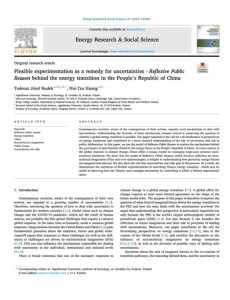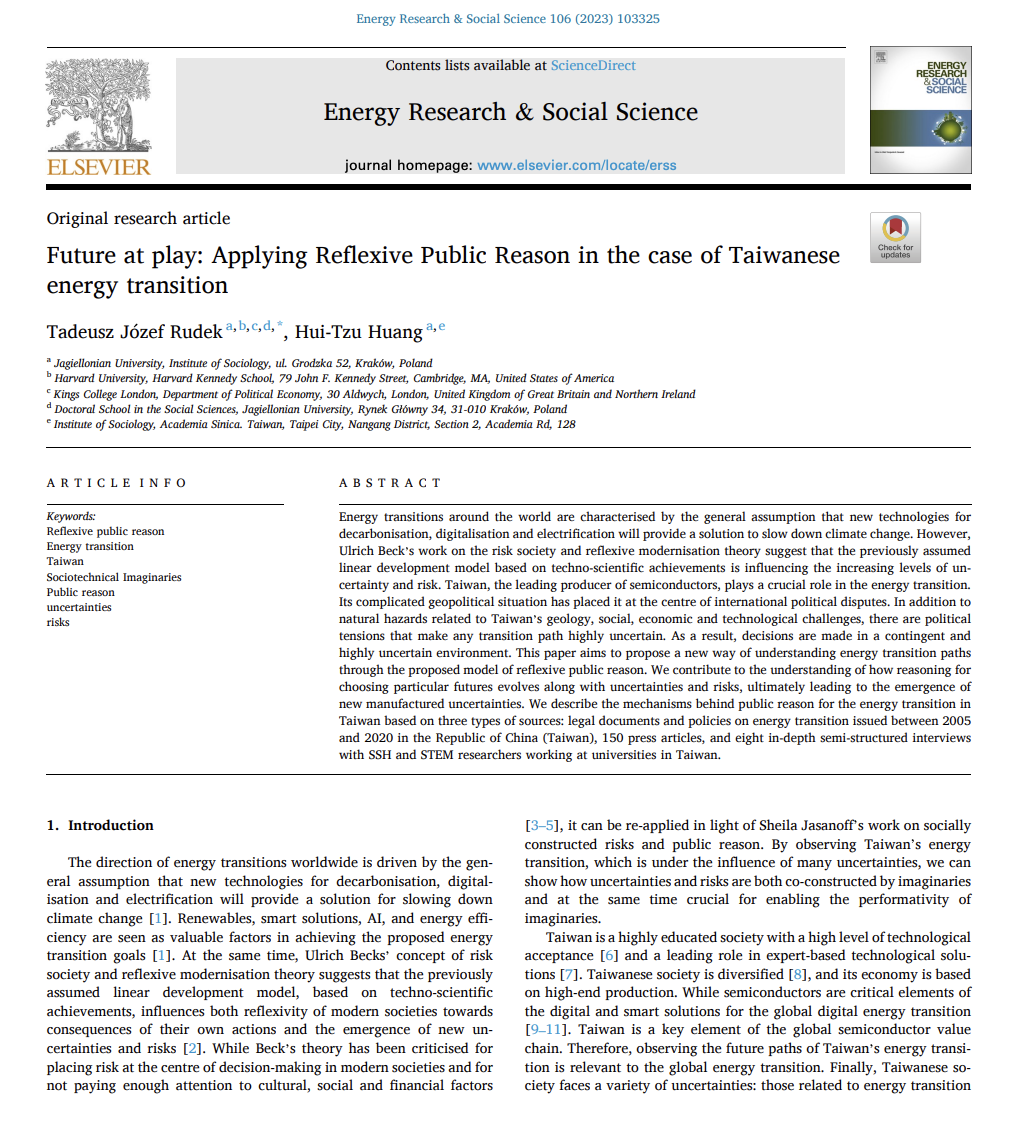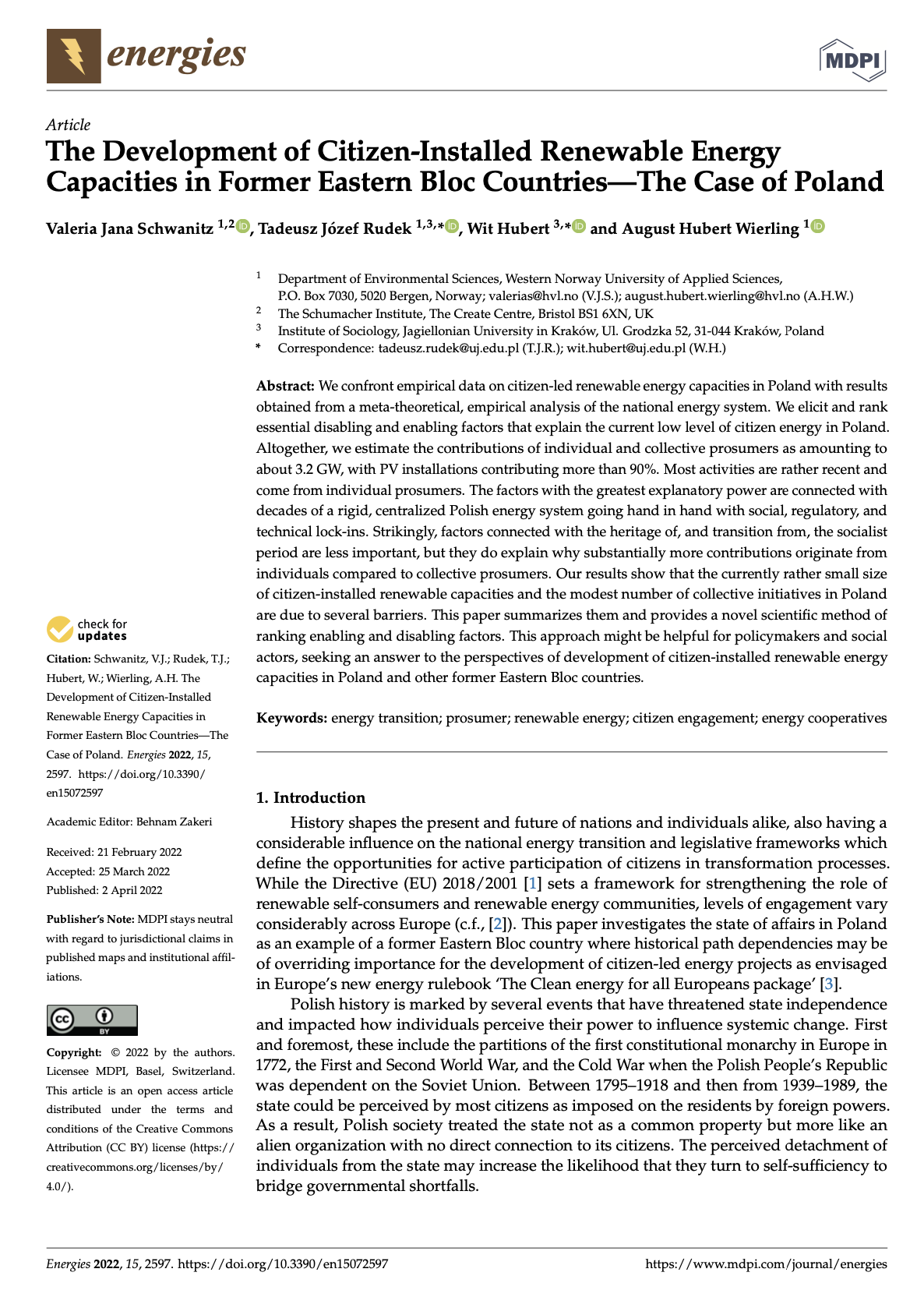

 Web Content Display
Web Content Display
Web Content Display
Web Content Display

 Web Content Display
Web Content Display
Web Content Display
Web Content Display
The project has been funded by the European Commission under the Horizon Europe programme in cooperation with the Ministry of Science and Technology, People's Republic of China (PRC).
Project partners:
Description:
The PANTHEON Pathways to(wards) carbon neutrality for climate, environment, health and socio-economic co-benefits research project aims to create a model and development pathways to carbon neutrality in China and the European Union, so that policies in the EU and the PRC focus on creating benefits in areas such as the environment, health, society or the economy.
The PANTHEON project will focus on two areas in particular:
The Jagiellonian University team is responsible for the reflexivity of the modelling process and the involvement of stakeholders (social and scientific researchers, trade unions, industry, NGOs and activists) in the modelling process. The Polish team also oversees the project's Advisory Board and is responsible for critiquing the modelling process and assumptions.
Ulrich Beck's work on the risk society and the theory of reflexive modernisation shows that increasing levels of uncertainty and risk are directly linked to the previously assumed linear model of development based on scientific and technological achievements. At the same time, the technological and economic perspective dominates scientific reflection and public discourse.
The different speeds and pathways of implementation of mitigation policies in many political and social contexts have demonstrated the weakness of this perspective in shaping public trust and responding to public expectations - in other words, in creating reflexive public reason. One of the key elements of climate change policy and political action is the energy transition. This research aims to propose a new understanding of energy transition pathways through the model of reflexive public reason. The paper illustrates the mechanisms of energy transition through the example of energy transition in Taiwan and China. Based on three types of sources: 14 in-depth semi-structured interviews with technical and social science scholars working at universities in both regions, 320 journal articles, legal documents and policies on energy transition published between 2005 and 2020 in Taiwan and mainland China.
Key findings
The framing of uncertainty by experts has implications for the legitimacy of knowledge and social expectations.
Civic epistemologies can be studied through the functioning of advisory bodies - their self-descriptions and the perceived expectations that members of the bodies attribute to other social actors.
Civic epistemologies in relation to the pandemic and the introduction of Covid-19 vaccination were dynamic and variable.
Abstract
The Covid-19 pandemic has recently become one of the most important challenges facing contemporary societies. The global scale of the phenomenon and the many unknowns meant that government authorities had to make and justify immediate decisions affecting all aspects of society. A critical factor influencing the dynamics of the pandemic and the social sphere was the vaccine and the debates surrounding it. This study aims to present the results of an analysis driven by the concepts of civic epistemologies and co-production (Jasanoff). It concerns the pandemic and the introduction of the Covid-19 vaccine in Poland. By analysing the concept of civic epistemologies and discussing it in the context of co-production, we provide a broad picture of how the Polish government's response to the pandemic was co-produced with the development of the vaccine, and which civic epistemologies were behind the observed decision-making processes. We argue that the way uncertainty was framed by expert bodies played a key role in this process. We analysed the period from the WHO's announcement of the pandemic on 11 March 2020 until January 2022 in order to reflect on the patterns of knowledge production, evaluation and use present in the decision-making processes of Polish governmental bodies and their advisory committees. In addition, in order to observe the vaccine discourse in a comparative way, we decided to compare the media vaccine discourse before and after the pandemic announcement. The analysis is based on three data sources: in-depth interviews with members of advisory bodies: Medical Council of the Prime Minister of the Republic of Poland, COVID-19 team of the Polish Academy of Sciences and representatives of the signatories of the Appeal of Scientists and Doctors Against Mandatory Vaccination against Sars-Cov2 and Lockdown, press analysis (from April 2019 to April 2021). The analysis was complemented by an in-depth reflection on the official positions of the listed councils and panels.
Ever since vaccines have been developed, individuals have questioned the value and importance of vaccines for their health, and expressed distrust towards proponents of vaccines. These individuals doubt the benefits of vaccines, raise concerns about their safety and efficacy, and question the need for them. We will give vaccine hesitant parents the time and space to discuss this complex issue in our interviews.
Vaccine hesitancy is a most burning issue for healthcare professionals who meet more and more challenges in building trust relationships with their patients. Healthcare professionals need abilities to encounter vaccine hesitant individuals so that these individuals can make their decisions about health. Professionals need to be prepared to answer questions and concerns related to vaccines.
VAX-TRUST strives for both increasing understanding of vaccine hesitancy and improving the interaction between healthcare professionals and vaccine hesitant individuals. In this project, we will:
equip healthcare professionals with tailored up-to-date knowledge on vaccine hesitancy in their specific local region and nation from a comparative perspective; this knowledge will be obtained through (A) a review of previous research on vaccine hesitancy, (B) an analysis of individual, socio-demographic determinants of vaccine hesitancy, (C) an analysis of macro-level determinants of vaccine hesitancy, and their interplay with socio-demographic ones and (D) qualitative observations and interviews with healthcare professionals and parents at local healthcare centres in specific Target Regions;
give healthcare professionals tools, support and peer support to encounter a range of attitudes in relation to vaccination, taking into account that some professionals may themselves be vaccine hesitant. This will involve specific interventions tailored to healthcare professionals in the Target Regions. These interventions will be evaluated for usability and transferability;
distribute the intervention tools to future healthcare professionals, medical and nursing students, in order to strengthen their knowledge about vaccine hesitancy and facilitate support to meet with vaccine hesitancy in their future career;
identify and communicate recommendations to Target Regions, the seven countries and European area based on the project activities.
Funding: This project has received funding from the European Union’s Horizon 2020 research and innovation programme under Grant Agreement No 965280.
 Web Content Display
Web Content Display
Web Content Display
Web Content Display

Read More o

Autor: Tadeusz Józef Rudek, Hui-Tzu Huang
Energy transitions around the world are characterised by the general assumption that new technologies for decarbonisation, digitalisation and electrification will provide a solution to slow down climate change. However, Ulrich Beck's work on the risk society and reflexive modernisation theory suggest that the previously assumed linear development model based on techno-scientific achievements is influencing the increasing levels of uncertainty and risk. Taiwan, the leading producer of semiconductors, plays a crucial role in the energy transition. Its complicated geopolitical situation has placed it at the centre of international political disputes. In addition to natural hazards related to Taiwan's geology, social, economic and technological challenges, there are political tensions that make any transition path highly uncertain. As a result, decisions are made in a contingent and highly uncertain environment. This paper aims to propose a new way of understanding energy transition paths through the proposed model of reflexive public reason. We contribute to the understanding of how reasoning for choosing particular futures evolves along with uncertainties and risks, ultimately leading to the emergence of new manufactured uncertainties. We describe the mechanisms behind public reason for the energy transition in Taiwan based on three types of sources: legal documents and policies on energy transition issued between 2005 and 2020 in the Republic of China (Taiwan), 150 press articles, and eight in-depth semi-structured interviews with SSH and STEM researchers working at universities in Taiwan.
Read More oAuthors: Katarzyna Rabiej-Sienicka, Tadeusz Józef Rudek, Aleksandra Wagner
Despite global commitment to work together in tackling climate change, transitions do not occur similarly in different parts of the world. While the EU is setting an ambitious goal of decarbonising its energy system by 2050, Poland remains a member opposing those changes. Although most Poles declare their understanding of the necessity of decarbonisation and support for that process, both current and former governments have not treated this problem as a sufficient stimulus to a substantial energy policy change.
Using the lens of Sociotechnical Imaginaries (Jasanoff, Kim, 2015), we explain that resistance to implementing fast changes into the Polish energy system is founded on the complex set of shared imaginaries linked to policy, scientific and lay knowledge. Based on a qualitative analysis of strategic documents of the energy policy in Poland published after 1989, the interviews with key actors in the energy sector, and analysis of government funding programmes for science, we mapped the dominant and alternative SIs of the energy transition in Poland. The analytical framework was based on a sociotechnical imaginaries circulation model used to explain their actions in the Polish energy transition.
The study's outcome shows that the dominant SI of an energy system in Poland relates to the preservation of the existing system focused on energy security, a significant role of hard coal and lignite, and prosumers as supporters for the centralised energy system. The alternative imaginaries (associated with decentralisation, energy democracy and renewables) are getting traction and becoming more important.
Read More o
Authors: Aleksandra Wagner, Damian Gałuszka
The discourse on energy transition is probably one of the most visible of all the public policy discourses in the contemporary world. How the world’s energy future is imagined is a significant factor for both implementation of this idea and understanding why the process is slower than one might expect. A promising heuristic for understanding the patterns of collective “future-making” is offered by the idea of sociotechnical imaginaries. This paper draws on the multi-level perspective to offer an in-depth analysis of the sociotechnical imaginaries reflected in pop culture, in particular in selected digital games. The authors analyse serious digital games, considering how the imaginaries of energy reflected in them can shift the energy transition.
Authors: Aleksandra Wagner, Tadeusz Józef Rudek
A text aimed at popularising the concept of sociotechnical imaginaries to a wider audience in Poland. Here, Aleksandra Wagner and Tadeusz Rudek attempt to describe the context of energy research in a concise and accessible manner.
Read More o
Although Covid-19 was not the first pandemic, it was unique in the scale and intensity with which societies responded. Countries reacted differently to the threat posed by the new virus. The public health crisis affected European societies in many ways. It also influenced the way the media portrayed vaccines and discussed factors related to vaccine hesitancy. Europeans differed in their risk perceptions, attitudes towards vaccines and vaccine uptake. In European countries, Covid-19-related discourses were at the centre of media attention for many months. This paper reports on a media analysis which revealed significant differences as well as some similarities in the media debates in different countries. The study focused on seven European countries and considered two dimensions of comparison: between the pre-Covid period and the beginning of the Covid pandemic period, and between countries. The rich methodological approach, including linguistics, semantic field analysis and discourse analysis of mainstream news media, allowed the authors to explore the set of meanings related to vaccination that might influence actors’ agency. This approach led the authors to redefine vaccine hesitancy in terms of characteristics of the “society in the situation” rather than the psychological profile of individuals. We argue that vaccine hesitancy can be understood in terms of agency and temporality. This dilemma of choice that transforms the present into an irreversible past and must be taken in relation to an uncertain future, is particularly acute under the pressure of urgency and when someone’s health is at stake. As such, it is linked to how vaccine meaning is co-produced within public discourses.
Read More o Web Content Display
Web Content Display
Web Content Display
Web Content Display